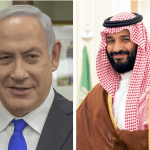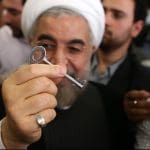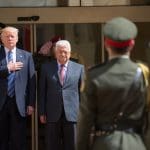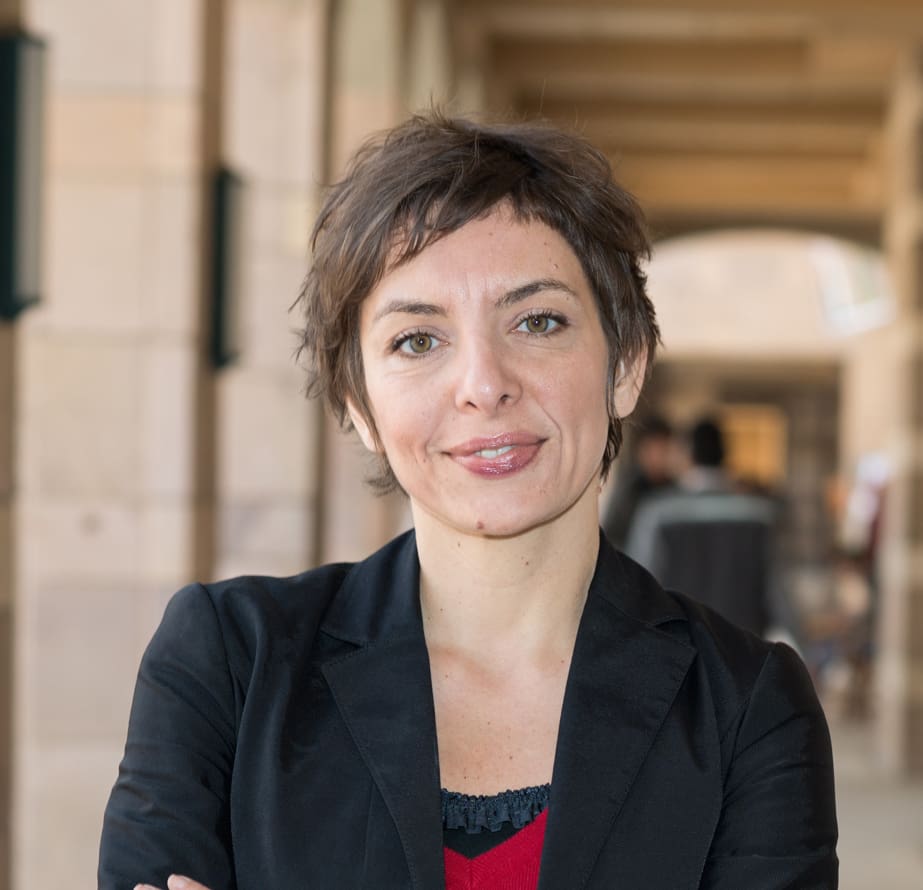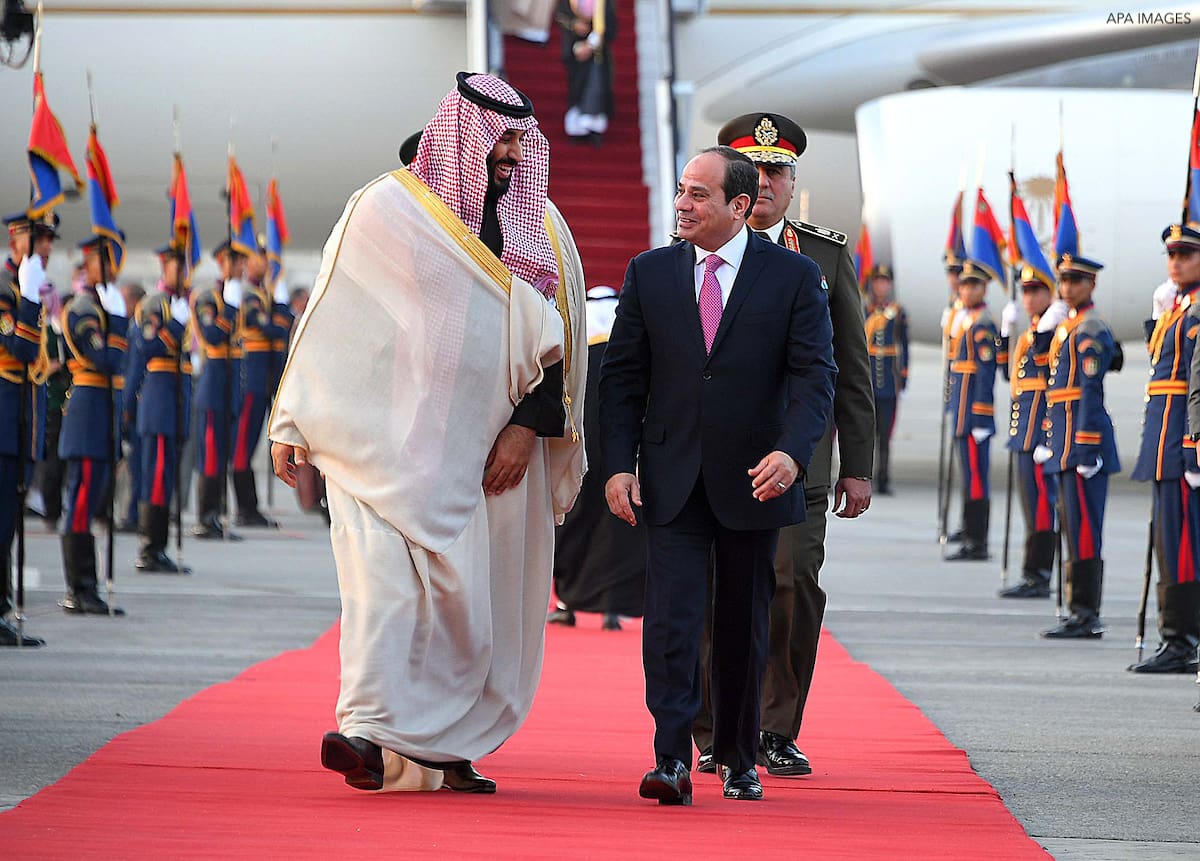
Overview: Nadine Naber
For decades, progressive political analysts have critiqued Arab states for abandoning the Palestinian struggle for liberation. According to this critique, while Arab governments often claim solidarity with Palestinians, their actions involve complicity in Israeli settler-colonialism – from political and economic cooperation with Israel to scapegoating Palestinians and repressing solidarity with Palestinian liberation within Arab states – as well as using the Palestine issue to bolster their legitimacy.1
This roundtable interrogates this critique, offering nuanced perspectives on whether and to what extent Arab states have abandoned or compromised the Palestinian cause. Contributors situate this question within the transnational context of US imperialism and the connected realities of Arab and Palestinian fragmentation. Their perspectives inspire new questions about the relationship between state-run Arab nationalism and the global right; the US-Gulf-Israeli relationship; and the Palestinian political establishment’s normalization with Israel.
As recent changes in the region have given rise to increased normalization with Israel and more and more cooptation of the Palestinian leadership, challenging the US and Israeli-backed fragmentation within and between Arab states is more urgent than ever before. To this end, contributors call upon readers to consider new possibilities for Palestinian-Arab solidarity.
Sherene Seikaly urges us to “return to the idea of Palestine for fortification in the next rounds of battle.” While Ibrahim Fraihat reminds us that Palestinians have allies in the people of the Gulf states, Loubna Qutami insists that “the schism is not between Palestinians and Arabs but between the revolutionary aspirations of the people and the interests of those in political power.”
Sherene Seikaly
To grasp the present reality of the lone Palestinian confronting geopolitical brutality, we can return to the fortunes and fallacies of state-run Arab nationalism. The latest deformations of this fallacy must be situated in the consolidation of the global right. Targeting Palestinians, dispossessing them, and foreclosing their futures has become an initiation ritual. Do it and you are welcomed into the ranks of the triumphant practitioners of xenophobia, racism, sexism, and stupidity.
The Donald Trump-Narendra Modi-Jair Bolsonaro bromance is crucial here. More crucial still is Arab state participation in these masculinist celebrations of suffocating the Palestinian. Egyptian President Abdel-Fattah el-Sisi and Saudi Arabian Crown Prince Mohammed Bin Salman prove their credentials by bullying the Palestinian, who today, more than ever, stands as the figure of the weak and bereft outsider. Any casual observer of history knows that Arab states have rarely, if ever cared about Palestine and the Palestinians. Yet, since 1948, a thin rhetorical veil of pan Arabism discursively shielded the Palestinians from full-fledged assault against the very idea of Palestine. Today, the global right and its Arab handlers have shorn the Palestinians of this last remaining shred. They seek at all costs to kill the idea of Palestine.
The idea of Palestine was one of the false promises of the modern Arab state. The desperate and disparate Arab performance in the war of 1948 mobilized that fateful group of young Egyptian officers. These men, along with their counterparts in Damascus and Baghdad, would become the vanguard of a never-realized revolutionary future. A future, they promised, of economic, political, and social equality nourished by anticolonialism, third worldism, and socialism. From the shores of the Mediterranean, the Nile, and the Tigris to the Ghouta oasis, these military men, these founding fathers, would destroy the anticolonial promise they had touted.
In its place, they built a resilient authoritarianism that imprisoned the very people that Arab nationalism had committed to liberating. If one stopped to search among the battered shards of revolutionary promise, one might have found the idea of Palestine. The Arab world’s authoritarian fraternity would excavate the idea as a stand for everything they failed to deliver. The founding military fathers used Palestine as evidence that they still believed in these imperatives just as their subjects bristled at their bald hypocrisies. The idea of Palestine stood for freedom and anticolonialism.
The idea of Palestine was one of the false promises of the modern Arab state Share on XToday the authoritarian fraternity has killed the valiant and flawed efforts of the Arab revolutionaries to reclaim the future, and it differs from the military fathers of yesteryear. This fraternity finds pleasure in the international cohort of leaders who seek to butcher opposition and expect international impunity. They are under no obligation to give lip service to freedom. Freedom is the antithesis of their visions for the present and future, and they will seek to bury it ever deeper.
This is why the idea of Palestine is nowhere now to be found in Arab state rhetoric. We could mourn this disappearance. It has dire consequences for the further entrenchment of the ongoing Nakba that is Palestinian reality. To be certain, the future is dark. But perhaps we can return, as have so many radicals in the Arab world and beyond, to the ongoing struggle for freedom, to the idea of Palestine for fortification in the next rounds of battle. As we do so a devastating question haunts us: Has Palestine lost not just the Arab states but the Arab people?
Ibrahim Fraihat
A number of events that suggest an improvement in the relationship between Israel and several Gulf states have taken place, especially since the arrival of Donald Trump to power. It started with former Saudi General Anwar Eshki’s 2015 meetings with former Israeli officials such as Dore Gold, and then Eshki openly visiting Tel Aviv. Recently, Oman received Israeli Prime Minister Benjamin Netanyahu in an official visit, the UAE received Israeli Minister of Sport and Culture Miri Regev, Bahrain participated in a cycling race in Jerusalem on Nakba Day, and Qatar received an Israeli gymnastics team and played the Israeli national anthem when an athlete on the team won an event. Only Kuwait seems to have stood firmly against any form of relationship with Tel Aviv.
While more encounters are expected in the near future, a sustainable and long-term relationship between Israel and the Gulf states remains far from a reality. The Gulf states will likely revert to their original positions once they realize that all they achieve from the relationship is international legitimization of Israel and their own delegitimization among their domestic constituencies. This is good news for the Palestinians, who can benefit from relations with the Gulf states without Israeli interference.
The first reason why the Gulf-Israeli relationship is doomed is the fact that it is not supported by Gulf citizens and thus remains restricted to government officials on both sides. Not even in one Gulf country does the public support such a relationship. On the contrary, some public figures who are known to be close to their governments have openly expressed outrage against such relations with Tel Aviv.
One might rightly argue that Egyptians never normalized with Israel though the Egyptian government’s relationship with Israel continued. Yet Egypt’s border with Israel renders the conflict central to Egypt’s national security. This is not the case for the Gulf, whose governments generally perceive their national security to be affected by developments with Iran rather than Palestine.
Furthermore, the emerging American-Gulf-Israeli alliance is not built on equal partnership – in terms of rights, obligations, and gains – but rather on manipulation and exploitation. Israel’s and the Trump administration’s gains are actuals while those of the Gulf states are promised or perceived. So far, the US has benefited from significant arms sales to the Gulf and withdrew from its obligations under the JCPOA, while Iran has remained committed to the terms of the deal. Israel too is achieving unprecedented gains regarding Palestine, given the US embassy move to Jerusalem and Trump’s aid cuts to UNRWA. Israel is also making cracks in the historical Arab boycott of Israel, which has always been seen as a Palestinian strategic reserve.
In contrast, the Gulf states’ gain is only the perception that one day the alliance will remove the Iranian threat. This objective is fundamentally questionable. First, the US and Israel have no incentive to risk further clashes with Iran after turning their gains to actuals. More importantly, it is not in their long-term interest to completely remove the Iranian threat, which they use to manipulate the oil-rich Gulf states. The threat allows the US, for example, to maintain itself as the sole security vendor to the Gulf region. The maintenance of the threat is even more important for Israel, which has historically milked the US for advanced technology, as the latter is committed to Israel’s military superiority in the region. The “Iranian threat” serves as a mechanism to ensure the continuous supply of funds and military technology from Washington.
The chance remains for the Gulf states to return to more robust support for Palestinian rights Share on XGulf states rushing to build a relationship with Israel are under the illusion that the road to Trump’s heart and mind goes through Tel Aviv. This is a myth that Israel hypes effectively, especially to the Gulf states. Gulf states should realize that they are giving indispensable services to Washington in many areas, including oil, counter-terrorism, and military bases, and thus they need no one to provide an in to the White House.
Moreover, the relationship will not succeed simply because it was tried before but failed. In 1995, Qatar opened a trade office for Israel but discovered that the relationship was nothing but a serious liability. In 2009, Qatar shut down the office and ordered its officers to leave.
Similarly, the Gulf-Israel relationship is doomed because it goes against the interests of the Gulf states themselves. A normalized Israel in the Middle East will allow it to compete economically with cities like Dubai. For Saudi Arabia, normalization will not only delegitimize its leadership position in the Muslim world but also invite Iran’s media to emphasize Riyadh’s dealings with Israel and give Iran the ideological upper hand.
Finally, the alliance is not institutionally based, and the only power keeping it together is Trump being in office. If the 2020 elections lead to a Democratic leader in the White House, the entire project of “confronting Iran” will collapse and the parties will revert to their original positions. Washington and Tel Aviv will retain their actual gains, while the Gulf states will go back empty handed. They will have lost the cards that they once had to play: an influential role in the region’s politics.
Yet despite this turn of events, Palestinians should not abandon the Gulf states, as this would play into the hands of the Israeli government. The chance remains for the Gulf states to return to more robust support for Palestinian rights – as well as a more robust role in regional politics. Moreover, Palestinians have allies in the Gulf, that is, the people of the Gulf states who have never subscribed to normalization with Israel. It also appears that certain individuals within Gulf regimes are behind the collaboration with Israel, rather than entire state systems. It is thus in the interest of the Palestinians to engage the Gulf diplomatically and with its civil society actors to ensure that they do not lose a key player in their struggle with Israel.
Loubna Qutami
The Arab region’s seismic transformations since the 2011 uprisings have stimulated critical questions regarding the relation between the unfinished Palestinian anti/de-colonial struggle and aspirations for freedom, justice, and an end to totalitarian rule among Arab masses. As Arab regimes re-establish a new – and perhaps more egregious – iteration of normalized political, diplomatic, military, and economic alliances with the Israeli state, they betray their peoples’ dreams of systemic change in their own countries as well. Thus, there are ready parallels between Palestinian and Arab peoples’ grievances with establishment political regimes, which often act as gatekeepers to the current order.
The story of puppet regimes is not new to the Global South, and certainly not new to the Arab region. For at least 40 years, several Arab countries have operated in the interests of global hegemonic powers rather than their own peoples’ interests. For Jordan and Egypt, these decisions were calcified in peace agreements with Israel, which ended prospects of direct confrontation between them and the Israeli state. But giving in to Zionist regional hegemony took place in other ways as well, including among countries that had no formal diplomatic relations with Israel.
Unfortunately, the Palestinian political establishment – a leadership that once included outspoken critics of other Arab regimes – has now joined these regimes, officially since the 1993 Oslo Accords but especially since 2007, when Palestinian-Israeli security cooperation deepened in unprecedented ways. Though 2011 offered a monumental chance to foreground Palestinian liberation as part of a new phase in Arab history, Palestinians were unfortunately ill equipped to seize the opportunity. This is in part due to the internal fragmentation within Palestinian political life, which intensified in 2006 when Hamas won the parliamentary elections. Since then, the split between Fatah and Hamas has hardened the segmentation of Palestinian constituencies, weakened Palestinians in the regional landscape, made the recuperation of a coherent vision and political program more difficult, and placed factional interests and geopolitical and global loyalties above the project of national liberation.
The paradox today is that in the exact moment that global efforts for Boycott, Divestment and Sanctions (BDS) of Israel are at their most powerful, Palestinians remain engulfed in coerced relations with the Israelis and Americans and relatively powerless geopolitically, while Arab regimes are intensifying their normalization with the Israeli state. The Arab dimension of the Palestinian national struggle must be understood in the context of this divide between those in power and those who challenge that power.
First, one must comprehend the precarity of the Palestinian colonial condition. The Palestinian people inhabit an ontology of Nakba, whereby Palestinian life, land, political institutions, vision, and strategy development are persistently decimated by siege, exile, and annihilation across multiple phases of the struggle and physical sites of resistance.
For the Palestinian revolutionaries of the 1950s and 1960s who anchored the political parties and later the fedayeen movement, the ability and necessity to inaugurate their political operations while in exile meant that they formulated their national identity and strategies interdependently with regional and international actors. This interdependent formulation of the Palestinian national struggle, which the PLO largely spearheaded in the aftermath of the 1967 war, meant that Palestinians enjoyed considerable support from regional and global state and non-state actors but were also vulnerable to the whims of regional and global reconfigurations of power. With each moment of regional and global transformation, Palestinians were forced to start anew, unable to accumulate materially and politically in the context of multiple exoduses (for example, from Jordan, Lebanon, Cyprus, Tunisia, Kuwait, and most recently Iraq and Syria).
Attempting to resolve this precarity, the dominant strand of thought and political power within the PLO, largely anchored by Fatah leadership, took questions of Palestinian self-determination, self-reliance, and identity literally, such that it made pragmatic decisions in its quest for a state without paying attention to the trappings of statehood and its subsequent institutional arrangements. Each decision was overdetermined by pragmatism rather than frame, ideology, principle, and an intentional strategy to maintain or even garner direct confrontation between the Arab regimes and Israel. After 1974, this nationalist pragmatism became the ultimate driver of strategy rather than revolutionary tenets of disruption and denormalization of a Zionist Israel’s permanence and influence in the region at large.
The schism is not between Palestinians and Arabs but between the revolutionary aspirations of the people and the interests of those in political power Share on XThough the PLO had not yet abandoned guerilla warfare and armed resistance as methods of acquiring power, it found itself increasingly vulnerable in the region as a result of deepening relations between the Arab regimes and both Israel and the US. During its time in Lebanon and following its 1982 exodus to Tunisia, the PLO began to rely on international diplomacy as its main strategy for statehood. Arab states had to cooperate with the PLO to levy taxes among the Palestinians living within their borders, and they maintained some ambivalence to brokering overt deals with Israel in the interest of retaining credibility among their populations. But such cooperation became largely symbolic and transactional rather than embedded in a joint-struggle model confronting Zionist expansionism.
By the early 1990s, The PLO had survived multiple phases of defeat, exodus, and loss across various sites in the region. On the heels of a monumentally successful first Intifada, Israelis were finally forced to negotiate with the PLO. For the Palestinians, the fall of the Soviet Union, the impotence of the Arab nations, the Gulf War, and the subsequent exodus of some 250,000 Palestinians from Kuwait after the PLO supported Saddam Hussein circumscribed the leadership’s ability to maintain their resistance struggle while in exile.
The road to the Oslo Accords, which marked official Palestinian capitulation and normalization with Israel, thus began long before 1993 and was deeply informed by both the precarity of the Palestinian ontology of Nakba and the desperate turn to nationalized pragmatism as a way out of the leadership’s decline in power and permanence in exile. Under these conditions, Palestinian political leaders made harmful decisions for their people and took unprincipled – albeit pragmatic – positions when it came to support for the rights and dignity of their Arab brethren.
We would therefore do well to interrogate the long-too-accepted claim that the Arabs abandoned Palestine and the Palestinians. Rather, Palestinians must assume responsibility for the things over which they did have control in the context of colonial occupation and dispossession, though it must be said it was not very much. Arab regimes, alongside the Palestinian political establishment, operated in tandem to nationalize the Palestinian cause and neutralize Arab countries in the confrontation with Israel. In the end, the schism is not between Palestinians and Arabs but between the revolutionary aspirations of the people and the interests of those in political power.
- To read this piece in Spanish, please click here. Al-Shabaka is grateful for the efforts by human rights advocates to translate its pieces, but is not responsible for any change in meaning.
Al-Shabaka Policy Member Sherene Seikaly is Associate Professor of History at the University of California, Santa Barbara. She is the editor of the Arab Studies Journal, co-founder and co-editor of Jadaliyya e-zine, and a member of the Journal of Palestine Studies Editorial Committee. Seikaly’s Men of Capital: Scarcity and Economy in Mandate Palestine (Stanford University Press, 2016) explores how Palestinian capitalists and British colonial officials used economy to shape territory, nationalism, the home, and the body. She has published in academic journals such as International Journal of Middle East Studies and Journal of Middle East Women’s Studies as well as in online venues including Jadaliyya, Mada Masr, and 7iber.
Al-Shabaka policy member Nadine Naber is Associate Professor in the Gender and Women’s Studies Program and the Global Asian Studies Program, and the founding faculty director of the Arab American Cultural Center at the University of Illinois at Chicago. Nadine is author of Arab America: Gender, Cultural Politics, and Activism (NYU Press, 2012). She is co-editor of the books Race and Arab Americans (Syracuse University Press, 2008); Arab and Arab American Feminisms, winner of the Arab American Book Award 2012 (Syracuse University Press, 2010); and The Color of Violence (South End Press, 2006). She has worked with groups like the Rasmea Odeh Defense Team, USACBI, AROC, and INCITE! Women of Color against Violence. She is currently an editorial board member of the Journal of Palestine Studies; the Critical Ethnic Studies Journal, and series within the University of Nebraska and the University of Washington Press. For more information, see: https://nadinenaber.com/.
Al-Shabaka Policy Member Loubna Qutami is a Presidents Postdoctoral Fellow at the University of California, Berkeley. She has a PhD from the Department of Ethnic Studies at the University of California, Riverside. Qutami is also the former Executive Director of the Arab Cultural and Community Center (ACCC) in San Francisco as well as a founder, member, and the former International General Coordinator for the Palestinian Youth Movement (PYM).
Al-Shabaka Member Ibrahim Fraihat is a professor of international conflict resolution at the Doha Institute for Graduate Studies, and Affiliate Scholar at Georgetown University. He previously served as Senior Foreign Policy Fellow at the Brookings Institution, and taught international conflict resolution at George Washington University and George Mason University. His latest book is Unfinished Revolutions: Yemen, Libya, and Tunisia after the Arab Spring (Yale University Press, 2016). He is the recipient of George Mason University’s Distinguished Alumni Award (2014) for his achievements in the field of conflict resolution. Fraihat can be followed on Twitter @i_farihat.













